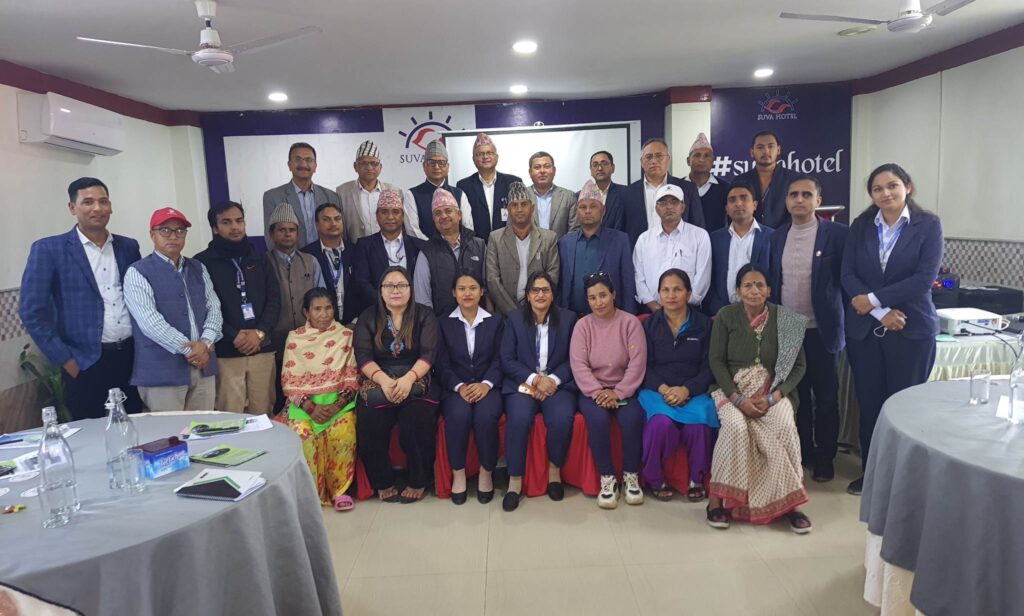Plastic Waste Management in Nepal

Executing Agency: Center for Green Economy Development Nepal (CGED Nepal)
Funding Agency: United Nation Development Programme (UNDP)/The Global Environment Facility (GEF)/Small Grants Programme (SGP)
Office Address :- City View Apartment, 4B, Bhakhundole, Lalitpur.
Project Summary
Contract N0: NEP/SGP/OP6/Y8/CORE/PLA/2023/02)
Project Agreement Date: February , 2023
Project Completion Date: September, 2023
Project Period: 8 months
Plastics began to come into wide use during the 1950s and the amount of plastic produced has grown constantly since then, increasing from 2 million tons in 1950, to 407 million tons in 2018 (UNEP, 2020). It is estimated that Nepal produces about 4,900 tons of solid waste every day, of which 13 percent is plastic waste (World Bank, 2020). Plastics are most commonly used for packaging, food containers, building and construction, transportation, electrical and electronic equipment, agriculture, healthcare, sport, and energy generation. Despite their wide use, plastics have severely impacted human health and the environment. Management of plastic waste has been a constant challenge globally and also in Nepal. It was estimated that 79% of all plastic wastes generated worldwide had been landfilled or dumped, a further 12% incinerated and only 9% recycled (Geyer et al., 2017). Plastic pollution is a global challenge that requires international cooperation and global partnership to tackle together.
As per the Constitution of Nepal, the responsibility of managing solid waste rests with the three tiers of government. Solid Waste Management Act 2011 and Solid Waste Management Rules 2013 are in place to maintain a clean and healthy environment by reducing the adverse effects of solid waste. Similarly, Local Government Operation Act 2017 has given a mandate to local governments to manage solid waste efficiently and effectively. However, the institutional capacity of the local level governments for effective solid waste management appeared to be weak (World Bank, 2020). A study by the UNDP revealed that 76% municipalities in Nepal do not have separate policies/programs for managing plastic waste (UNDP, 2020). Out of the total budget, around 4.67%, 1.35% and 1.43% was invested on environment sector by the Metropolitan Cities, Sub-Metropolitan Cities and Municipalities respectively (CBS, 2020). Apart from the government sector, the role of private sector and civil society organizations is equally important in managing plastic waste in Nepal.
The UNDP/The GEF Small Grants Programme has entrusted The Center for Green Economy Development Nepal (CGED Nepal) to commission this study. Founded in November 2012, CGED Nepal is approved and registered by the Company Registrar Office of Nepal as a not-for-profit making and non-political institution. It has been working in the field of environment, climate change, biodiversity, ecosystem-based approach, watershed, forestry, agriculture and gender mainstreaming among others.
The scope of the study will be to develop a policy on plastic waste management and providing stocktaking of plastic pollution in Nepal that includes background information, existing situation on plastic production and use in selected municipalities, appropriate policies with priority actions and responsible institutions. These information will be of great help in addressing plastic waste management problems in Nepal which is also aligned with the GEF country programme strategy on local to global coalitions for chemicals and waste management. The specific objectives are as follows:
- Conduct a baseline study of plastic pollution in selected municipalities representing all seven provinces of Nepal;
- Review existing literature available at national and international/regional levels on plastic waste management policies and practices;
- Assess the existing policy landscape for the management of plastics in Nepal;
- Highlight the ongoing solutions at institutional and programmatic levels regarding plastic management in Nepal, and
- Explore the possible opportunities for zero-waste management and scaling up the best solutions.
